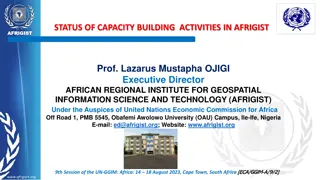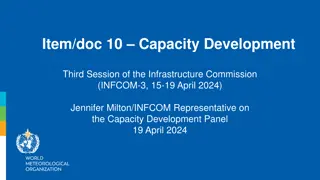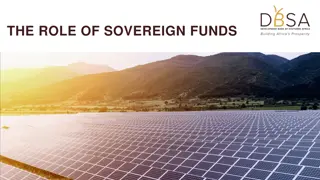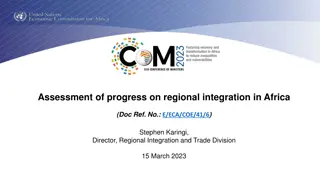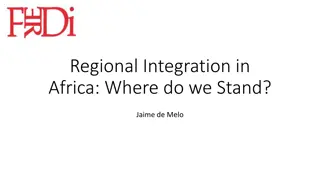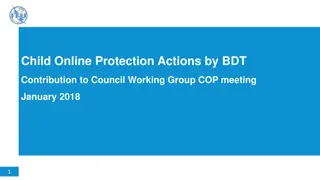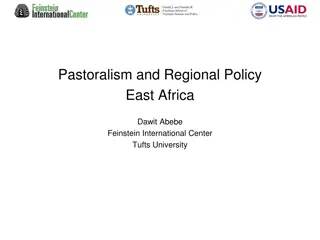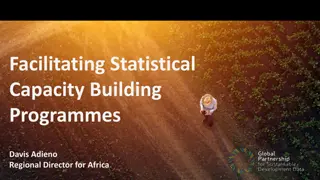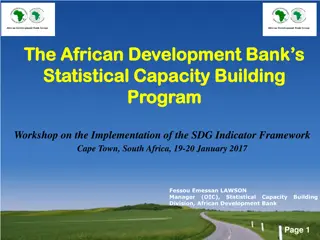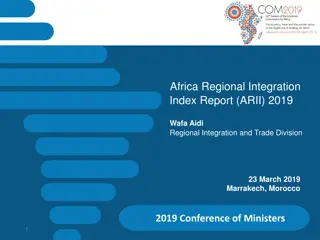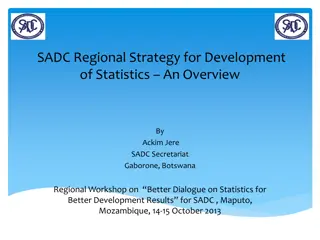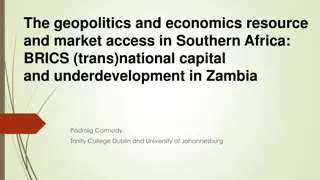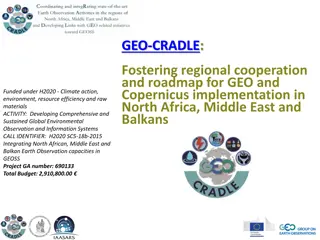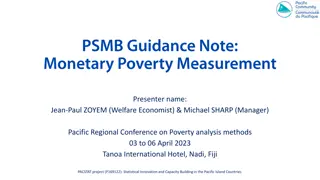Enhancing Capacity for Regional Development in Africa
Join the webinar on Capacity for Regional Development and Economic Integration in Africa. Explore topics like regional value chains, productivity enhancements, and more. Get insights from experts to boost sector performance and achieve sustainable results. Learn from the LenCD network's experience in promoting better capacity development practices globally. Don't miss this opportunity to engage with professionals and contribute to regional growth.
Uploaded on Mar 14, 2025 | 3 Views
Download Presentation

Please find below an Image/Link to download the presentation.
The content on the website is provided AS IS for your information and personal use only. It may not be sold, licensed, or shared on other websites without obtaining consent from the author.If you encounter any issues during the download, it is possible that the publisher has removed the file from their server.
You are allowed to download the files provided on this website for personal or commercial use, subject to the condition that they are used lawfully. All files are the property of their respective owners.
The content on the website is provided AS IS for your information and personal use only. It may not be sold, licensed, or shared on other websites without obtaining consent from the author.
E N D
Presentation Transcript
IPCC Background and Purpose
IPCC Establishment The Intergovernmental Panel on Climate Change (IPCC) is the UN body for assessing the science related to climate change. It was established by the United Nations Environment Programme (UNEP) and the World Meteorological Organization (WMO) in 1988 to provide policymakers with regular scientific assessments concerning climate change, its implications and potential future risks, and to put forward adaptation and mitigation strategies. It has 195 member states. In the same year the UN General Assembly endorsed the action by WMO and UNEP in jointly establishing the IPCC.
Purpose and Role of IPCC IPCC assessments provide governments, at all levels, with scientific information that they can use to develop climate policies. IPCC assessments are a key input into the international negotiations to tackle climate change. IPCC reports are drafted and reviewed in several stages, thus guaranteeing objectivity and transparency.
Information sources for IPCC Reports The IPCC assesses the thousands of scientific papers published each year to inform policymakers about the state of knowledge on climate change. The IPCC identifies where there is agreement in the scientific community, where there are differences and where further research is needed. It does not conduct its own research. To produce its reports, the IPCC mobilizes hundreds of scientists. These scientists and officials are drawn from diverse backgrounds. Only a dozen permanent staff work in the IPCC s Secretariat.
3 Main roles - Working Groups The IPCC has three working groups: Working Group I (the physical science basis of climate change); Working Group II (impacts, adaptation and vulnerability); and Working Group III (mitigation of climate change). It also has a Task Force on National Greenhouse Gas Inventories that develops methodologies for estimating emissions and removals. All of these are supported by Technical Support Units guiding the production of IPCC assessment reports and other products.
IPCC Assessment Reports IPCC Assessment Reports consist of contributions from each of the three working groups and a Synthesis Report. Special Reports undertake a shorter assessment of specific cross-disciplinary issues that usually span more than one working group.



